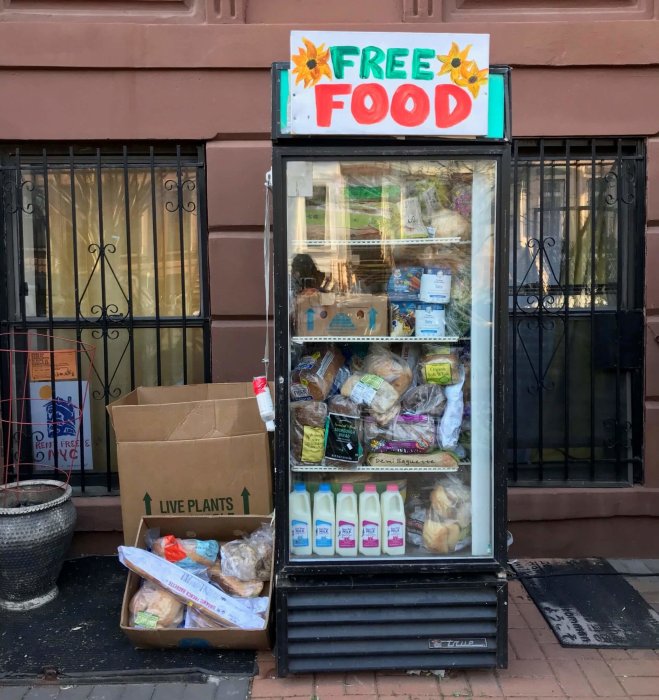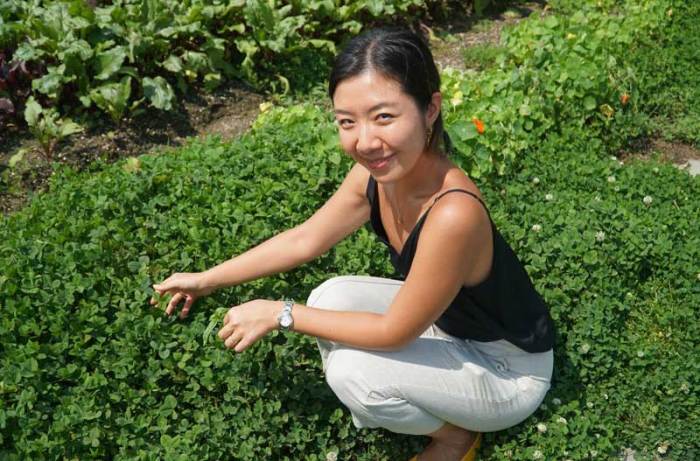For Brooklynites looking for a different way to get fresher produce and help the surrounding community, CSAs are the way to go.
A CSA is a community supported agriculture program that supports independent farms. The program — the roots of which date back to the 1920s — allows members of the community to make an investment in local farms, pre-ordering shares of produce for the season’s harvest.
These farmers and CSA groups then work together to agree on the prices and dates of distribution for such shares. Prices and sizes of shares vary depending on the CSA and their plans, with most offering fruits, vegetables, eggs, cheese, bread and/or meat.
CSA programs benefit the community by providing fresh, farm-grown produce to people, while the farmer benefits by having a portion of their produce pre-sold.
Justianna Kubersky has been a member of the Ditmas Park CSA program for the past seven years.
“There are a few big benefits to joining a CSA,” Kubersky said. “There is the obvious one: fresh local produce that is sometimes more than you can eat!”
But, the Ditmas Parker said, it’s also much more than that.
“I have benefitted by becoming a better cook to think of creative ways to use up my share,” she said. “But I also know that every summer I will always have fresh, tasty tomatoes and cucumbers and salad greens! It’s an embarrassment of riches!”
Many CSA’s are member-run organizations, relying on volunteers to set up, clean up and help distribute shares.
Kubersky told Brooklyn Paper that being able to meet and work with other people in the community to make the distributions happen is another plus side to being part of a CSA program.
“The time commitment to the distribution is usually two hours per year for most people, and it’s a fun community event to pick up the CSA share each week,” Kubersky said.
Jenna Harris, who is part of the East Williamsburg CSA core group, said that being part of a CSA program has also been a way for her to stay in touch with her community.
“I have been able to meet people in my neighborhood I definitely would not have met otherwise,” Harris said, adding that she’s also been able to experience cooking with new produce, such as Japanese eggplant, that she would not have tried had she not received it in her CSA box.
Since joining a CSA program, Kubersky said that another benefit has been feeling more “in tune with nature.”
“Some years, we get lots of basil. Other years, we get lots of zucchini. There’s always a great variety, but the shifts in the produce are often connected to the weather, so it’s interesting to see how things grow differently each year,” Kubersky said.
The Ditmas Park CSA works with Amantai Farms, which is run by Jorge Carmona, a Colombian immigrant who works about 20 acres of land in Pennsylvania.
“Our farmer is the most wonderful and kind person. He often includes special extras on his shares like mint or garlic scapes,” Kubersky said. “If he knows someone really likes something, he tries to include it whenever he can. He brings produce for 80 people once per week during the season, and it’s always as good and often better than the farmer’s market.”
Karen Oh, the founder and general coordinator of the Prospect Lefferts Garden CSA, emphasized the point that CSAs help people become more connected with the food they consume and the process it goes through to get from farm to table.
“People don’t know where their food comes from and how hard it is to grow it. It’s a way for them to connect to the fact that there is a farmer — a person — at the end of the food chain and they have to make it work,” Oh said.
“When it rains like crazy, I hope people realize that farmers are having to deal with flooding and working in the muck. If it’s super hot, I hope they get the connection that someone had to pick in the heat,” Oh added.
Oh wants others to know that CSAs are more than a food distribution model, as they are tied to “philosophy around food justice,” “operating within capitalism” and the community.
Besides helping farmers and bringing a fresh taste of nature to Brooklyn, the Ditmas Park CSA donates a share to a local food bank every week. The CSA also continued distributions during the height of the pandemic, with prepackaged and outdoor distributions, providing a way for people to connect with nature.
“We’ve been pleased that many people come back every year and it’s nice, especially in Brooklyn, to know your neighbors!” Kubersky said.
The Ditmas Park CSA offers full and partial produce shares and will run for 20 weeks from approximately June 22 through Nov. 2. Although the harvest season has begun, the CSA is still accepting members on a prorated basis. For more information, visit the Ditmas Park CSA website or write ditmasparkcsa@gmail.com.
Here are other CSA programs in Brooklyn:
Sweet Pea CSA – Brooklyn Heights
Brooklyn Bridge CSA – Brooklyn Heights
Brooklyn Beet CSA – Downtown Brooklyn






















